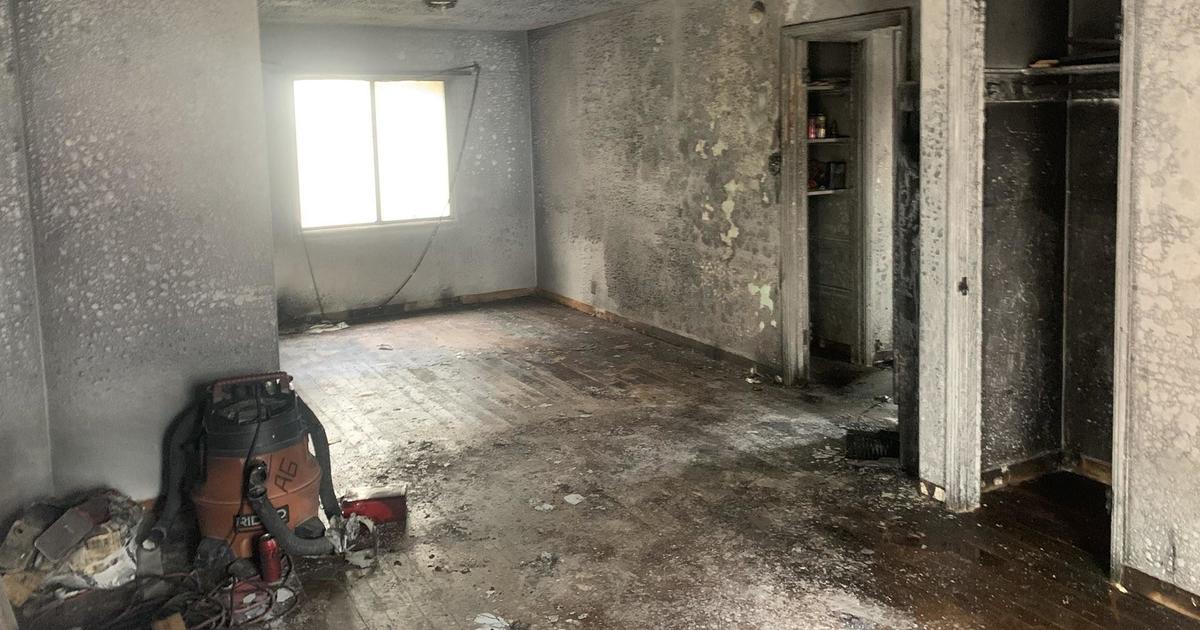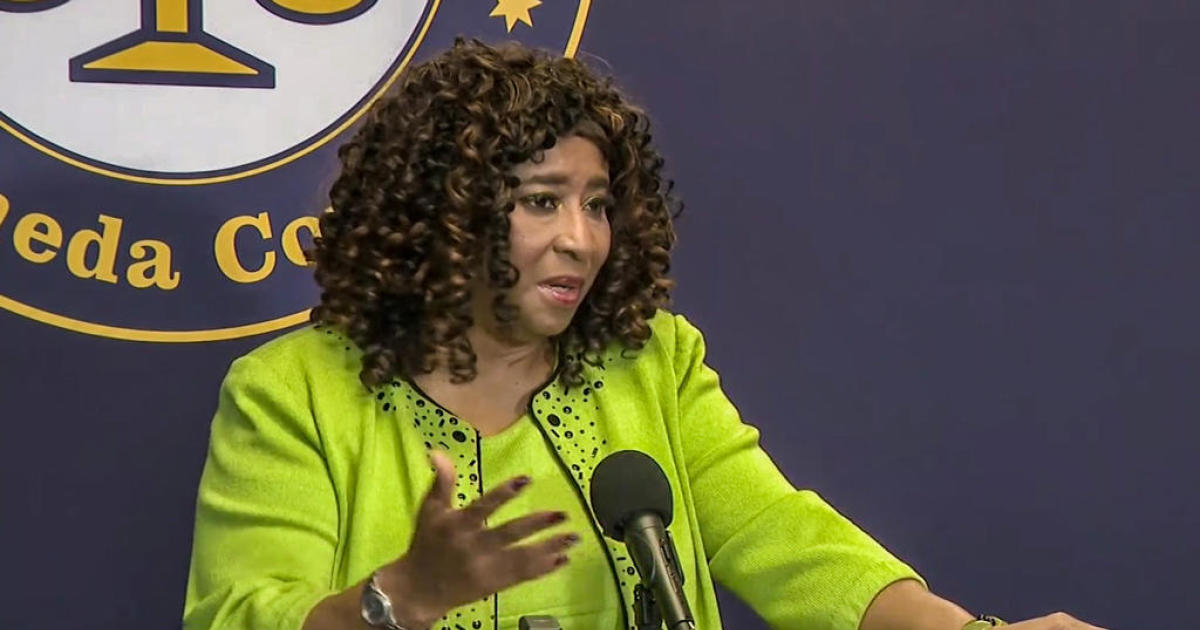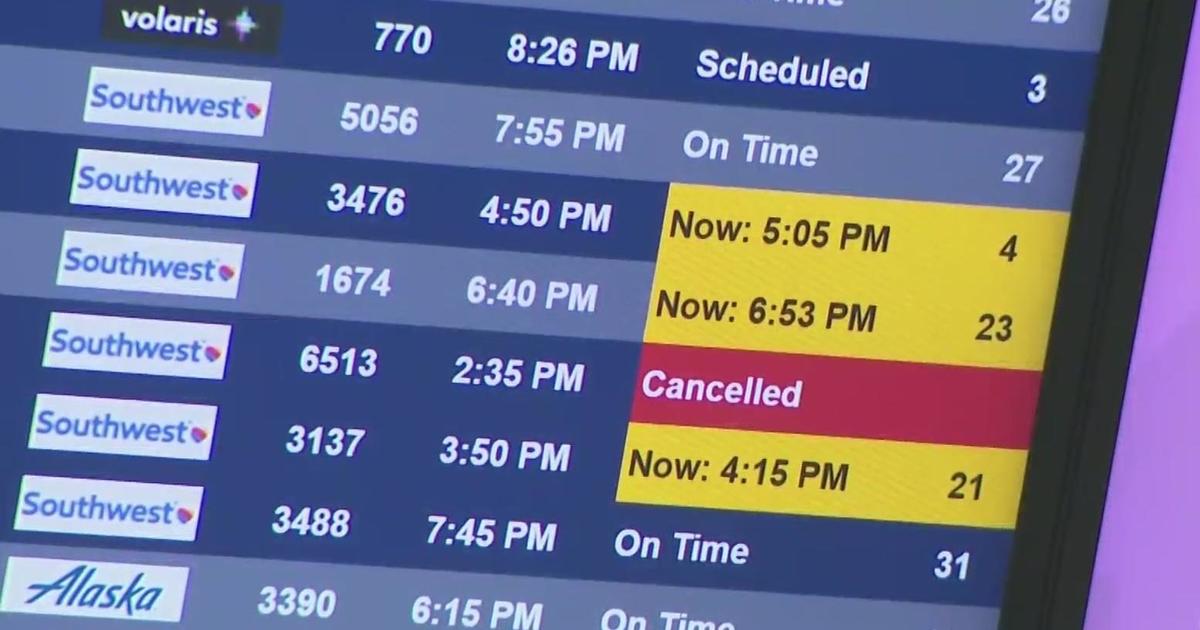Expert Witness Testifies Ghost Ship Warehouse Had Dangerous Materials
OAKLAND (KPIX 5) -- The Ghost Ship trial continued with the third day of witness testimony Wednesday as an expert who formerly worked with the Oakland Fire Department discussed what he called dangerous materials that were at the warehouse.
Derick Almena, 49, and creative director Max Harris, 29, each face 36 counts of involuntary manslaughter in connection with the massive fatal fire during a music party at the warehouse at 1309 31st Ave. on the night of Dec. 2, 2016.
- COMPLETE COVERAGE: Deadly Ghost Ship Warehouse Fire
After a line of questioning continued from Tuesday, Cesar Avila of the Alameda County Fire Department was deemed an expert witness. He educated the court on fire and building codes.
Avila is the former head of fire inspections for the city of Oakland. As the Assistant Fire Marshal of Oakland, he also supervised six fire inspectors.
ALSO READ:
- Ghost Ship Tenant Describes 'Wall Of Fire' That Roared Through Oakland Warehouse
- Ghost Ship Trial Witness Dies In Weekend Car Crash; Defense Objects To Emotional Testimony
This was the first time he has ever been defined as an expert in court. Almena's attorney Tony Serra objected to having Avila qualified as an expert because he never previously had testified as an expert.
Judge Trina Thompson certified Avila as an expert witness, but included one limitation: he is only allowed to testify regarding the implementation of fire and building codes.
Avila educated the court on how many exits and fire extinguishers a building like the Ghost Ship warehouse should have, as well as proper lighting and a fire alarm system.
Defense attorneys for Harris and Almena claim that the cause of the fire was arson.
Wednesday afternoon, Avila testified that the RVs and trailers that were at the Ghost Ship warehouse before the fire broke out weren't allowed under the city's building and fire codes.
Asked by Alameda County prosecutor Casey Bates if it was permissible for the warehouse at 1309 31st Ave. to have RVS and trailers used as living spaces, Cesar Avila, who is now an Alameda County Deputy Fire Marshal working for the city of Emeryville, said, "Absolutely not."
Avila said the building code doesn't allow RVs in warehouses because they could have fuel and propane tanks that could make fires burn more intensely.
"There are a lot of fluids that could augment a fire," Avila said.
He added that batteries for RVS "are another potential augmentation" for fires.
Harris' lawyer Curtis Briggs cross-examined Avila at length about how thick the Oakland fire code is, where his office was located, whether he used a city car to get to building inspections and whether the city's building inspection files are stored on paper or on a computer.
During further cross examination, the defense honed in on if Avila was aware of any records of safety complaints or code violations at the warehouse. He said he wasn't. The defense also directed responsibility on the warehouses longtime owners, not the two defendants.
Jennifer Turner, a former tenant in 2014 was also called up to the stand by the prosecution. She said she found a posting on Craigslist about housing. The location was advertised as a "psychedelic pirate ship."
When she met Derek Almeida she said that she was told, the warehouse will be understood as a 24-hour artist collective, even though they were people living there."
She moved out two months later over safety concerns.
Testimony in the trial, which is expected to last at least several months, will resume on Tuesday afternoon.
© Copyright 2019 CBS Broadcasting Inc. All Rights Reserved. This material may not be published, broadcast, rewritten, or redistributed. Bay City News Service contributed to this report.



